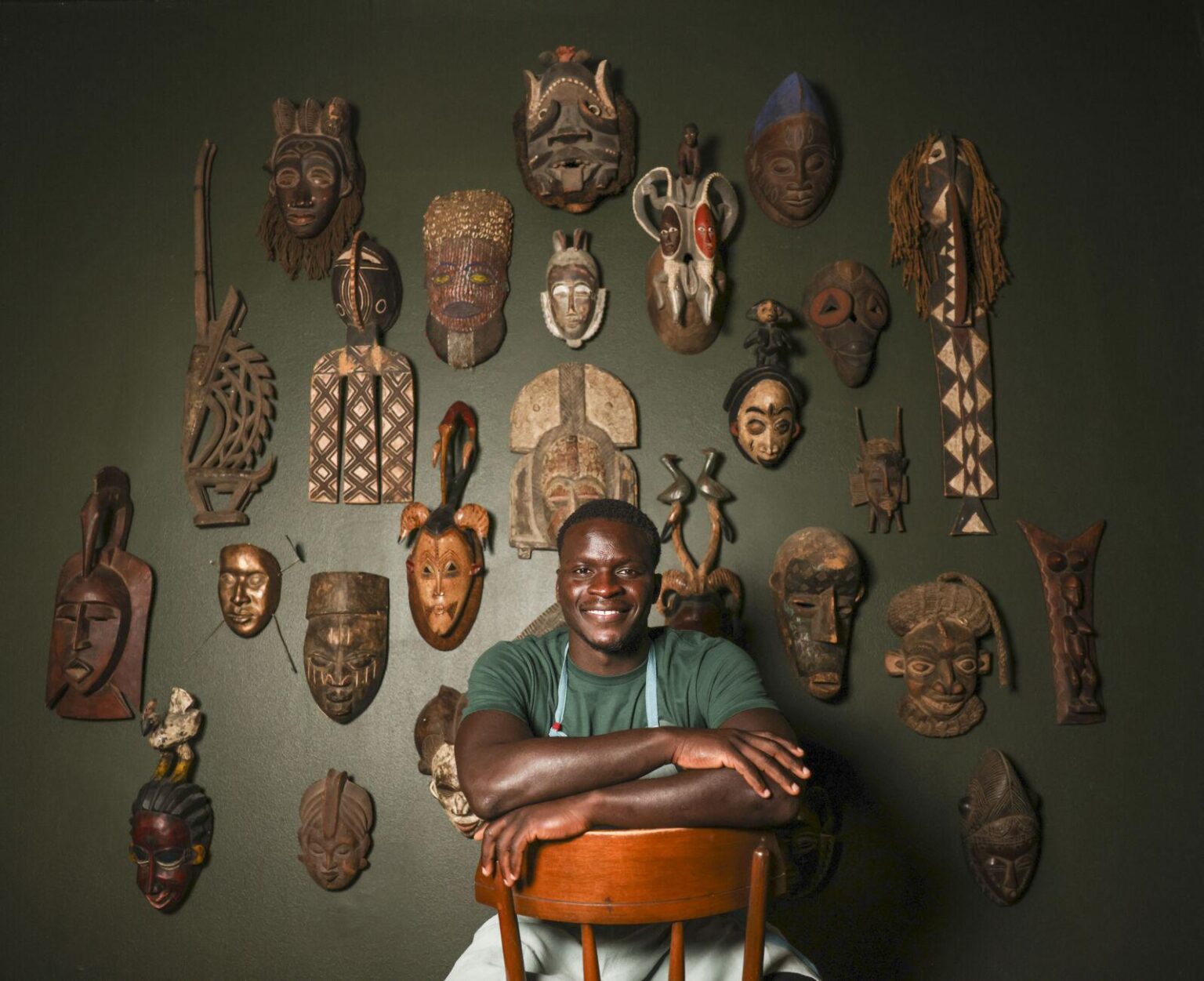Dakar Nola’s award-winning tasting menu and unique style of service, brought to life by chef Serigne Mbaye and his business partner Effie Richardson, have elevated modern Senegalese cuisine among restaurants in New Orleans on Magazine Street.
Earlier this year, the acclaimed restaurant received the James Beard Award for Best New Restaurant in just its second year of operation, solidifying Dakar Nola as a leader in the fine dining space.
“Two years later, here we are,” says the chef in disbelief. “I’ve got the best new restaurant in the country and I’m cooking food that I grew up eating.”
By way of his restaurant, Chef Mbaye is showcasing the rich flavors and traditions of Senegal using locally sourced ingredients and working to bring greater recognition to an underrepresented cuisine in the culinary world.
Connection to His Cuisine
Born in Harlem and primarily raised in Senegal, Mbaye developed a strong connection to his cuisine early on, along with a deep sense of community and hospitality from watching his mother bring people together over a meal.
“Cooking is something that has always been a part of my life,” says Mbaye. “My mom had a Senegalese restaurant in Harlem before I was born. And at the time I was born, the restaurant was closed, and our house became the restaurant.”
Driven by his deep-rooted passion for food and inspired by his mother, Mbaye began to pursue a career in cooking more seriously, quickly rising through the ranks of various restaurants before deciding to attend culinary school in 2016.
A Tale of Two Cities
After a homecoming trip back to Senegal and a chance encounter that landed him a job at Commander’s Palace, a renowned restaurant in New Orleans, Mbaye made his way South, where he was introduced to a vibrant, seafood-loving food scene that reminded him of the flavors he grew up eating.
“When I came back, I was like, ‘I need to cook our food,’” Mbaye recalls. “I was used to working at Italian and French restaurants, and it was all about the butter, the cream, etc. But now, here I am in the South, where they’re using okra in their dishes, and they’re using black-eyed peas.”
Inspired by the food he saw and the connections he discovered between Senegal and New Orleans, Mbaye set out to open his own restaurant. He spent some time honing his skills and gaining a broader perspective on the culinary scene by working at Michelin-starred restaurants around the country before finally returning to New Orleans. “By the time I came back to the South, I was ready,” he says.
By Nicholas Carr


